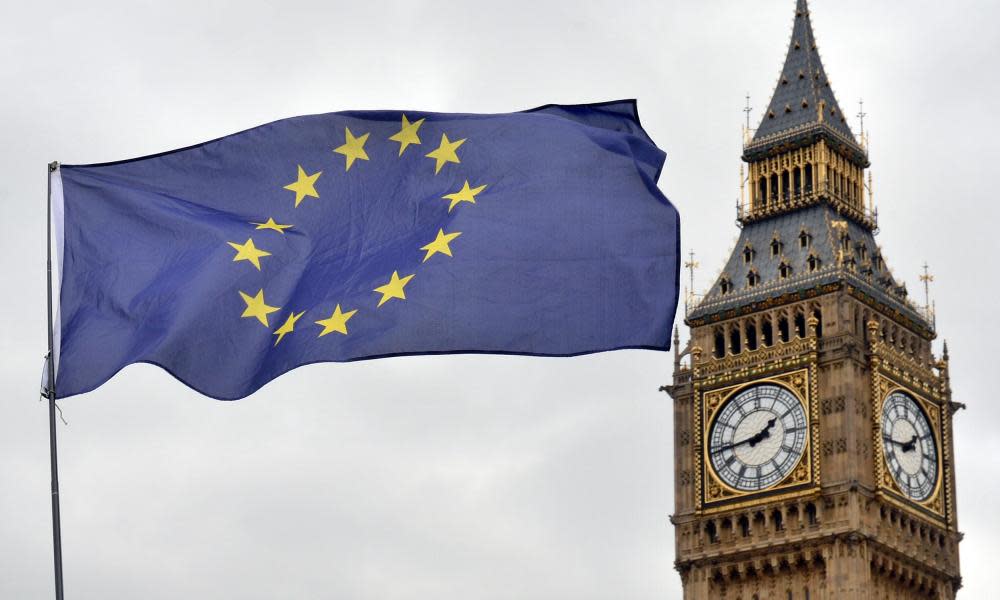European parliaments 'could get vote on transitional Brexit deal'

European parliaments could be given a vote on a transitional Brexit deal, according to analysis by the German Bundestag that could complicate Theresa May’s hopes of avoiding massive disruption when Britain leaves the EU.
It has long been known that a complex final trade deal between Britain and the EU would need the assent of parliaments across the union. But it had been assumed that a transitional arrangement would form part of the initial divorce deal, requiring only majority agreement among the bloc’s 27 governments acting in the European council.
The Bundestag analysis, however, suggests that an interim arrangement to smooth the path between divorce and a future trade deal could also be subject to approval by at least 38 parliaments, including regional assemblies and upper houses, if it strays into areas that are national rather than EU matters.
While the European commission has the power to negotiate trade agreements with the rest of the world and manage the rules governing the EU single market, Brussels is expected to give member states a say if these agreements touch on employment, social and environmental protections.
According to a document seen by Politico, the analysis says that if the transitional deal “is being ‘loaded up’ with competencies of the member states, this would turn it into a mixed agreement [affecting both EU and national legislation], which would require unanimity in the European council and the ratification of all member states for it to be sealed.”
The report emerged hours before May was due to sit down to a working dinner on Wednesday evening with the EU’s chief negotiator, Michel Barnier, and the president of the European commission, Jean-Claude Juncker, at No 10.
The visit was arranged before the prime minister called a snap general election last week. EU officials see it as achance to discuss the Brexit process without getting into formal negotiations.
Sabine Weyand, a trade expert who is Barnier’s deputy, and Martin Selmayr, Juncker’s influential chief of staff, will also be at the table.
The dinner completes a set of visits by a trio of EU institutions since May filed Britain’s article 50 notice last month. The prime minister recently met Donald Tusk, the president of the European council, and Antonio Tajani, who leads the European parliament.
The commission has said talks will not begin until a new British government is in office after 8 June.
European affairs ministers meeting in Luxembourg without Britain on Thursday will fine-tune the EU’s negotiating guidelines before the union’s first official Brexit summit on Saturday. EU sources are not expecting significant changes to a document drafted by Tusk’s officials.
At a preparatory meeting last week, EU diplomats restated that securing the rights of EU nationals in the UK would be their first priority, and called for “effective, enforceable, non-discriminatory and comprehensive” guarantees for the three million EU nationals in the UK.
At another meeting on Monday, they said EU nationals should be entitled to apply for permanent residency after five years in Britain – a reminder to Westminster of existing EU law.

 Yahoo News
Yahoo News 
